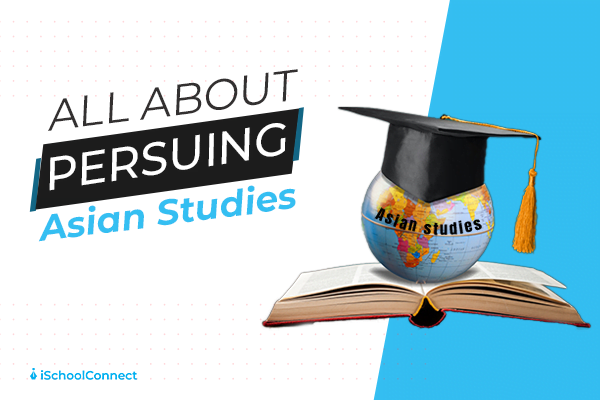Table of Contents
In North America, Europe, and Australia, Asian studies are known as Oriental studies. The cultures, languages, history, and politics are comprehensively studied under Asian studies.
Asian studies integrate components of sociology, history, cultural anthropology, and a variety of other disciplines to investigate political, cultural, and economic issues in traditional and modern Asian civilizations.
The faculty’s courses cover both the primary traditions of the places studied and, in most cases, their contemporary developments. Language, literature, history, and culture are included in all courses, creating job opportunities in art and architecture, archaeology, history, literature, philosophy, religion, and current social studies.
Asian Studies courses
- Chinese language course – Blagoveshchensk State Pedagogical University – BSPU, Blagoveshchensk, Russia
- Asian studies – Colorado college, colorado, USA
- Courses in Regional Studies program (RSP) – Victoria Junior College
- Modern East Asian studies – Goethe University Frankfurt
- South Asian Cultural and Religious History/Classical Indology – Heidelberg University
- China-Europe Executive Master of Business Marketing – Freie Universitat Berlin
Asian Studies Syllabus

Semester I
Paper I: Introduction to the Regions (50 Marks)
- Idea of the Regions
- Political Governments & Society in South and southeast Asia
- People of the Regions
- Religion & Cultural trends in South and southeast Asia
Paper-II: Introduction to Theories of Asian Studies (50 Marks)
- Unit 1: Theories and Area studies approach- Indianisation
- Unit 2: Theories and Area studies approach- Localisation vs. Convergence
- Unit 3: Early instances of state formation in Burma & Siam
- Unit 4: Early instances of state formation in Cambodia & Indonesia
Paper III: Colonial History: 16th to 18th centuries (50 Marks)
- Age of Mercantile Capitalism: Early European trade in South and southeast Asia
- Age of Industrialisation & Asia
- Growth of European territorial and political consolidation in South and southeast Asia
- Colonial Raj in South and southeast Asian Countries: Case Studies
Paper IV: Colonial History: 19th and 20th centuries (50 Marks)
- Nation States and their challenges to Raj -Modes of indigenous response.
- Nationalist Revolutions- Case Studies
- Pan- Asian Nationalism & Decolonisation in South and southeast Asia
- New Governments & Polity in South and southeast Asia
Paper V: Research Methodology: Part 1 (50 Marks)
- Definition of Qualitative Research
- Steps & Methods in Qualitative Research
- Definition of Quantitative Research
- Steps & Methods in Quantitative Research
Semester II
Paper VI: Post Colonial History 1948 – 1990 (50 Marks)
- Emergence of Cold War & Nations in South and Southeast Asia
- Asian Unity & Asian Ideology
- Non-democratic experiments in South and Southeast Asia
- Political institutions and political culture till the end of Cold war
Paper VII: Post Colonial History 1990- 2015 (50 Marks)
- Globalisation & South and southeast Asian Response
- Growth of New Civil Society.
- Neo Globalisation & South and South East Asia
- Age of Asianism & Big Powers in South and Southeast Asia
Paper VIII: South and southeast Asian Economic Issues (50 Marks)
- Basic Features of South and southeast Asian Economy
- South and South East Asia in context of colonial Economy- Trade & Agriculture
- Regional Economy in South and southeast Asia- Case Studies
- Approaches to Development Paradigms in South and southeast Asia
Paper IX: South and southeast Asian Economic Issues (50 Marks)
- Economic Groupings in post-colonial South and South East Asia.
- Role of Multi-National Corporations in South and southeast Asia
- Development in South and southeast Asia- Case Studies
- Corruption, Terrorism, and Development in South and southeast Asia
Paper X: Research Methodology:
- Computer Application
- Methods to write a Project
- Methods to write a research paper
- Citations and their variables
Semester III
Paper XI: Post Independent Government, Politics and Human Rights (50 Marks)
- Concept of Human Rights
- The Democratic and Non-Democratic forms of Governments in South and Southeast Asia
- Government, Polity & Human Rights- Case Studies
- South and southeast Asian Governmental Response to Human Right issues Paper
XII: Post Independent Government and Politics and Human Rights (50 Marks)
- Identifying Conflict Areas and Issues in South and Southeast Asian Governance
- Human Rights Issues in South and Southeast Asia
- United Nations, Human Rights & South, and Southeast Asian Response
- Bilateral and Multilateral Arrangements: Organizing for Peace, Confidence-Building, and Cooperation Perspective.
Paper XIII: Study on Ethnicity & Minority Issues in Contemporary South and Southeast Asia (50 Marks)
- Conceptual Paradigms – Definition of Ethnicity & Minority
- Governance- Majority, Minority and Electoral Politics in South Asia
- Governance – Majority, Minority and Electoral Politics in Southeast Asia
- Minority People’s Movements in South and Southeast Asia
Books for Asian studies

- Given to the Goddess: South Indian Devadasis and the sexuality of Religion – Lucinda Ramberg (2014)
- White Love and Other Events in Filipino History – Vicente L. Rafael (2000)
- Desiring China: Experiments in Neoliberalism, Sexuality, and Public Culture – Lisa Rofel (2007)
- Cold War Ruins: Transpacific Critique of American Justice and Japanese War Crimes – Lisa Yoneyama (2016)
- Mao Zedong and China in the Twentieth-Century World: A Concise History – Rebecca E. Karl (2010)
- Red Tape: Bureaucracy, Structural Violence, and Poverty in India – Akhil Gupta (2012)
- Orientations: Mapping Studies in the Asian Diaspora – Kandice Chuh and Karen Shimakawa (2001)
- Precarious Japan – Anne Allison (2013)
Eligibility for Asian studies
To opt for a Master’s course, you must have an Asian studies bachelor’s degree from a recognized institute. You are also required to have training of 2 years or more of a suitable Asian language. If you have focused on Asia’s present political economy or international relations, you may fit in better and hence have a greater chance of acceptance in the course.
A decent academic record with a minimum grade point average (GPA) of 3.0 (B) on a 4.0 scale, are required to pursue the course.
What we have to say
Many conversations in Asian Studies revolve around issues such as identity, tradition, and the historical, cultural, and political contexts of contemporary events.
The interdisciplinary approach of Asian Studies covers multiple wider theoretical problems that can not only help with academic studies but personal experiences too. This eventually makes it a domain that promises a wider range of adaptability and implementation.
FAQ’s
Q1. What are the jobs that you can get after completing your Asian studies?
Answer – After completing your Asian studies, you can get jobs such as –
- Translator/Interpreter
- Foreign Correspondent
- Foreign Affairs Analyst/Consultant
- Financial Advisor
- International Marketing Specialist
Q2. How much do Asian studies Majors students make?
Answer – The salaries for Asian students after their Majors ,ranges from $121,000 to $16,500 annually.
Q3. What are the sectors in which you can get a job after completing Asian studies?
Answer – After completing your Asian studies, you can opt for jobs in sectors such as government and public service, international relations, NGOs, teaching, intelligence and security work, journalism, business, and academic research.






